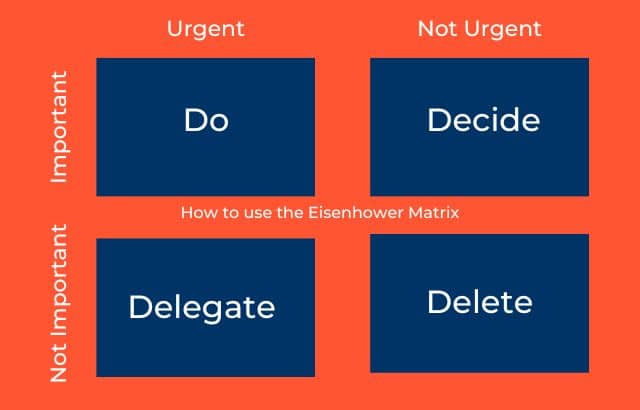In a world filled with distractions, it’s easy to feel like your mind is no longer under your control. Negative thoughts, emotions, and external pressures can easily pull you in different directions, leading to a sense of imbalance and overwhelm. But what if you could regain control over your mind and shape your thoughts and emotions? Is mind control even possible? The answer is yes, and in this guide, we’ll explore how to achieve mental mastery.
Table of Contents
The Secret to Controlling the Mind
At the core of mind control lies a simple truth: when you lack control over your mind, your thoughts can spiral out of control. You may find yourself overthinking, doubting your abilities, or struggling to manage your emotions. But the key to mental clarity and emotional stability is learning to take control.
Mind control is not just about overcoming negative thoughts—it’s about transforming your mindset to unlock your true potential. As Hirav Shah, a renowned business transformation expert, explains, mind control can have profound effects on both your personal life and career.
The Mind-Body Connection
Hirav Shah emphasizes that controlling your mind also means controlling your body. The two are inextricably linked. When your mind is chaotic, your body follows suit—leading to stress, poor health, and a lack of motivation. Conversely, when you control your mind, your body becomes a vessel of focus, energy, and productivity.
So, how do we develop the ability to control our minds in a world full of distractions? According to Shah, the secret lies in practice and dispassion. Let’s break it down with some practical techniques:
Steps to Control the Mind
- Develop a Strong WillThe first step in mastering your mind is cultivating a strong will. If you don’t have a clear intention or the willpower to control your thoughts, they will control you. For instance, many business leaders have to battle daily distractions and maintain focus in order to make high-stakes decisions. Having a strong will allows you to push past distractions and stay focused on your goals.Example: A CEO may struggle with managing a large team, but by staying focused on their vision and developing mental discipline, they can avoid unnecessary stress and make decisions more effectively.
- Understand the Nature of the MindThe mind is constantly fluctuating, moving between different thoughts and emotions. Understanding this inherent nature of the mind is key. You can’t control the mind by force; you control it by observing it and gently redirecting it. Recognizing the patterns in your thoughts allows you to redirect them before they take control of you.Example: Entrepreneurs often find themselves stressed or anxious, especially when juggling multiple projects. By recognizing the mind’s tendency to get overwhelmed, they can take proactive steps—like setting aside time for breaks or practicing mindfulness—to regain balance.
- Learn and Practice TechniquesMental control requires consistent practice. Techniques like mindfulness, meditation, and visualization can help you gain clarity and focus. The more you practice these techniques, the more control you will have over your mind.Example: A business strategist might use meditation to clear their mind before a big presentation. This practice not only reduces anxiety but also sharpens their ability to think clearly and communicate effectively.
Additional Tips to Regain Control
Overcoming the Pleasure Motive
In today’s world, the desire for instant gratification is overwhelming—whether it’s through food, entertainment, or social media. However, indulging in these distractions often leads to unproductivity and dissatisfaction. Learning to control the pursuit of immediate pleasure allows you to stay focused on long-term goals and achievements.
Example: A person working toward a major career goal might resist the temptation to check their phone constantly, choosing to focus on their tasks instead to ensure progress and long-term success.
Find Happiness in Small Things
True happiness isn’t about reaching a final destination—it’s a practice. By cultivating mindfulness and gratitude in your everyday life, you can maintain focus and enjoy contentment in small moments. This helps keep the mind grounded and enhances mental control.
Example: A successful businessperson might take a moment to appreciate a small victory, such as completing a project on time, rather than obsessing over the next big challenge or the next promotion.
Set Small, Achievable Goals
Setting small, realistic goals is a powerful strategy for mental control. Achieving these bite-sized objectives boosts confidence and creates momentum toward larger successes. Breaking down a broad, overwhelming target into smaller tasks makes it more manageable and keeps you on track.
Example: Rather than focusing on the broad goal of “becoming a successful entrepreneur,” break it down into smaller tasks like “write a business plan,” “develop a website,” and “acquire the first client.”
Mind Your Diet
What we eat affects how we think and feel. A poor diet, rich in processed sugars and fast foods, can lead to mood swings and hinder mental clarity. A balanced, nutritious diet can enhance focus and energy, which in turn supports mental control.
Research New Activities
Before diving into new projects, take the time to reflect on whether it aligns with your true desires or if you’re simply influenced by societal expectations or peer pressure. Research and contemplation are key to making well-informed decisions that support your long-term goals.
Example: Before starting a new business venture, a strategist might conduct market research, analyze trends, and evaluate competition to ensure the decision aligns with their long-term business objectives.
Reality Check: Stay Present
It’s easy to get distracted by dreams of future success or regrets about the past. However, true mental control comes from the ability to live in the present. Regularly assess whether you’re truly living in the moment or being swept away by unproductive thoughts.
Keep Yourself Occupied
A busy, productive schedule prevents your mind from drifting into negative, unproductive thought patterns. Stay engaged with meaningful tasks, which will allow you to stay focused and feel accomplished at the end of each day.
Use Your Imagination Wisely
Imagination is a potent tool, but it’s essential to direct it toward productive endeavors. Instead of letting your mind wander aimlessly, channel your creativity into visualizing success, solving problems, or brainstorming innovative ideas.
Prioritize Tasks
Effective time management hinges on your ability to prioritize tasks. When you know what’s most important, you can eliminate overwhelm and tackle what matters most first. This creates a sense of control and accomplishment.
Example: A business strategist might use the Eisenhower Matrix to categorize tasks as urgent, important, and non-essential, helping them stay organized and prioritize effectively.
Overcome Procrastination
Procrastination wastes time and stifles progress. The key to overcoming it is taking immediate action—don’t wait for the “perfect moment.” Start now and break down tasks into smaller, manageable steps to build momentum.
Example: A manager who procrastinates giving feedback to their team risks letting issues escalate. Addressing concerns early prevents bigger problems down the line.
Be Kind to Yourself
Mental control isn’t about perfection; it’s about understanding and accepting your limits. Avoid comparing yourself to others and allow yourself the space to relax and recharge. Self-compassion helps maintain balance and avoids burnout.
Spiritual Enhancement
Spiritual practices such as yoga, pranayama, and meditation aren’t just physical exercises; they purify the mind and promote emotional balance. These activities can detoxify both the body and the mind, providing a strong foundation for mental clarity and emotional well-being.
Key Takeaways: Achieving Mental Mastery
As Hirav Shah highlights, mind control is about understanding that your mind is not confined to your brain—it’s a holistic concept that involves your whole body. Achieving control is not easy, but with dedication and the right techniques, it’s absolutely possible.
Mind control isn’t about suppressing thoughts or emotions. Instead, it’s about gaining mastery over them so you can lead a balanced, focused life. Whether you’re a business leader looking to enhance decision-making or someone simply trying to regain control over your thoughts, these techniques can lead you to a more fulfilling life.
FAQs on Mind Control
Q: How long does it take to master mind control?
A: Like any skill, mastering mind control takes time and practice. Results can be seen within a few weeks if you consistently apply the techniques.
Q: Can mind control improve my business decisions?
A: Absolutely. When you control your thoughts and emotions, you’ll make clearer, more rational decisions that benefit both your personal and professional life.
Q: Is there a specific diet for mental clarity?
A: Yes, a balanced diet that includes healthy fats, whole grains, and plenty of fruits and vegetables can improve mental clarity. Avoid excessive sugar and processed foods.
Q: How can I manage distractions in my daily life?
A: Set clear priorities, create a structured routine, and practice mindfulness. Keeping your mind occupied with productive tasks reduces the temptation to indulge in distractions.
Summary:
Achieving mental control is a continuous journey that involves maintaining balance in your mind and body. By finding happiness in small things, setting achievable goals, prioritizing tasks, and staying present, you can foster focus and productivity. Alongside this, taking care of your diet, overcoming procrastination, and being kind to yourself are critical steps in maintaining mental clarity.



























